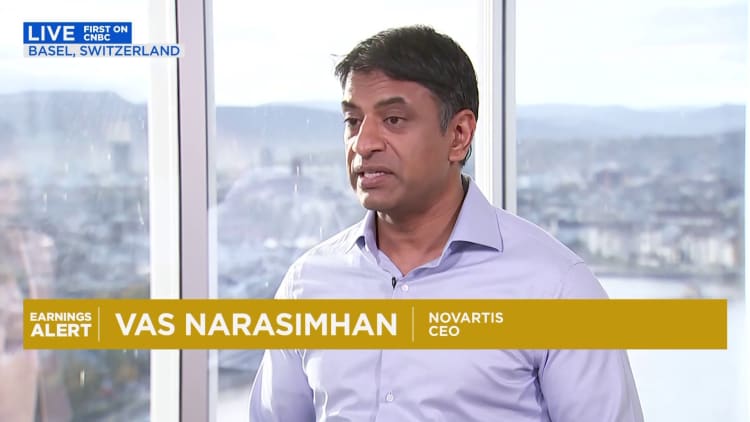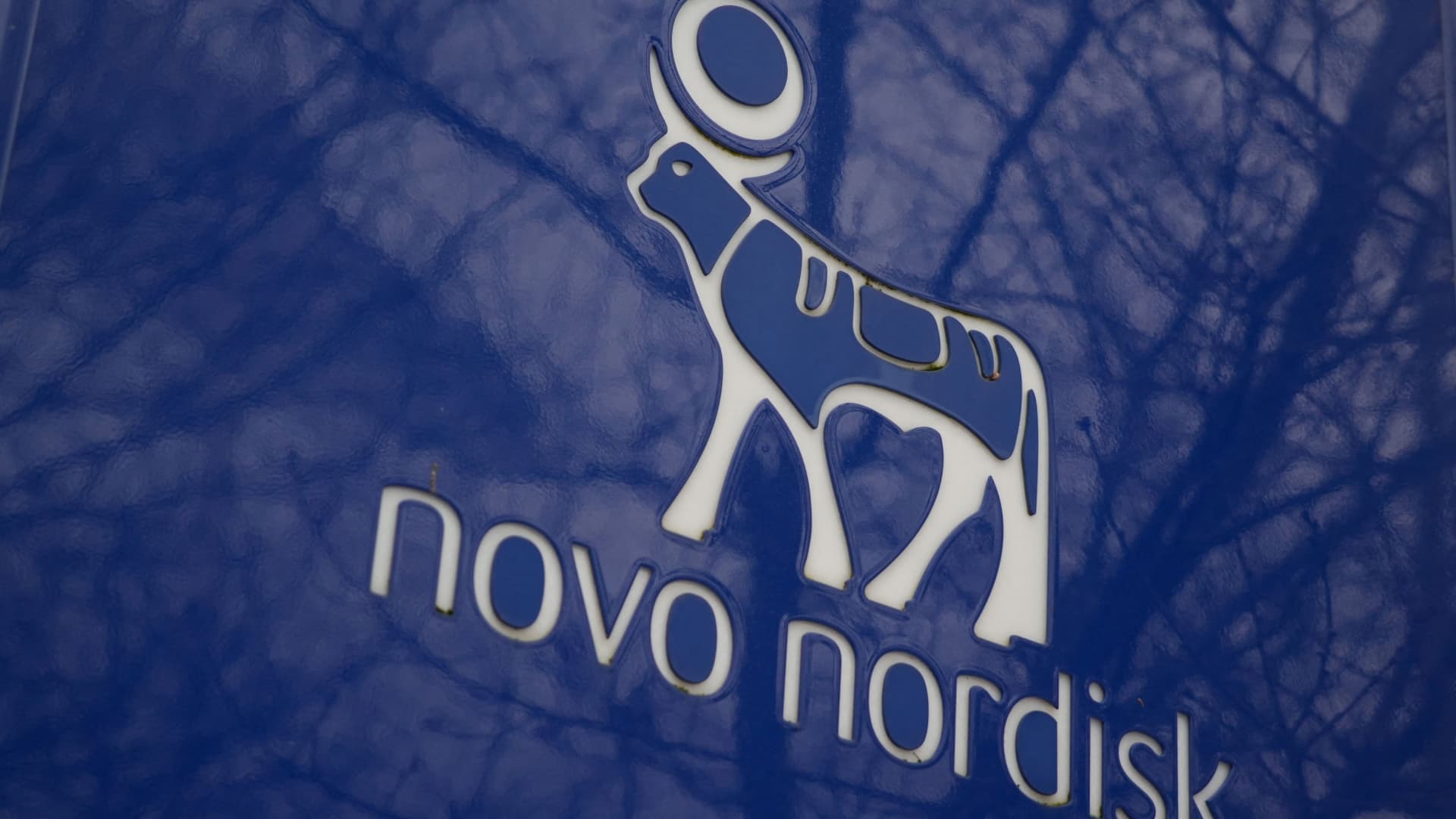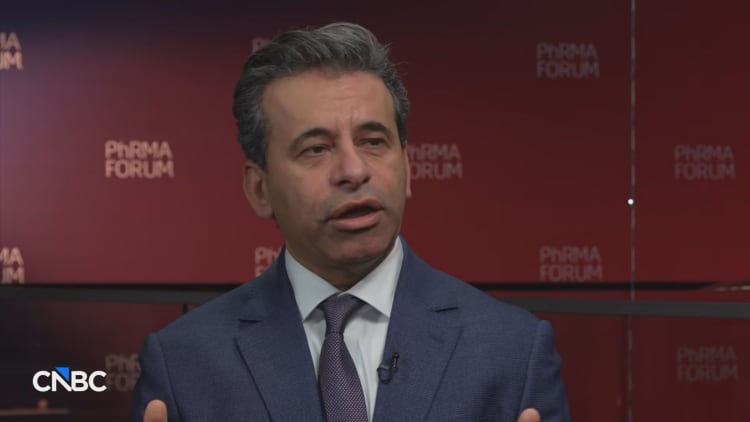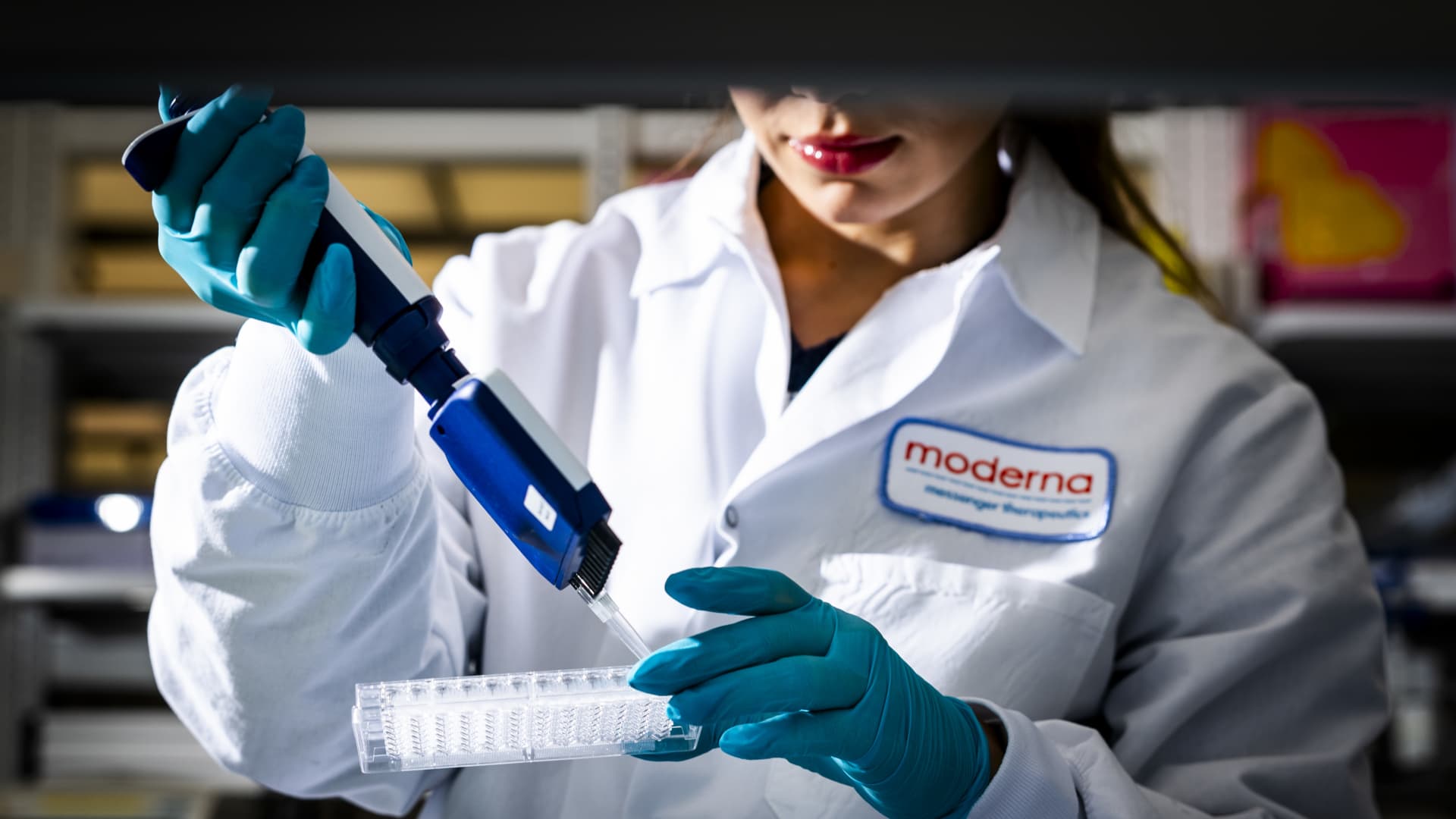Novartis has firepower for big M&A deals, says CEO

This photograph taken on October 30, 2022, shows the logo of the Swiss pharmaceutical and drug maker Novartis on a building in Basel.
Gabriel Monnet | Afp | Getty Images
Novartis “can never be done” when it comes to major acquisitions in its sector as it always needs to look for the next “great asset,” CEO Vas Narasimhan told CNBC.
In order to offset the hit from generics competition Novartis has been on a buying spree, acquiring more than 35 companies over the last year. The Swiss drugmaker announced its biggest deal in a decade on Sunday, when it announced it has agreed to buy U.S. biotechnology company Avidity Biosciences for about $12 billion.
The purchase will give the Basel, Switzerland-based pharma giant access to Avidity’s vast pipeline of promising experimental drugs. Novartis said two of Avidity’s three leading drugs that are expected to be launched before 2030 have the potential to generate billions of dollars in sales.
“We are driven by science and the technology, in this case this was a perfect fit for us … If you take a look at our free cash flow it approaching $20 billion a year, so we have adequate firepower to do deals like this and to bolster the growth profile of the company,” Narasimhan told CNBC’s “Europe Early Edition.”

Novartis delivered a 7% increase in third-quarter constant currency sales of $13.9 billion as it continues to grapple with competition for some of its blockbuster drugs. Net income jumped 25% year-on-year to hit $3.9 billion. Analysts had been expecting net income to come in at $4.4 billion, according to a consensus estimate compiled by LSEG.
Novartis shares fell 3.4% at the start of the Tuesday trading session. The stock has risen some 17% since the start of the year, outperforming an 8% rise on the Swiss Market Index.
The company said its performance in the quarter was driven by growth in sales of drugs including cancer treatments Kisqali, Pluvicto and Scemblix, as well as its multiple sclerosis drug Kesimpta, which all saw high double digit revenue growth.
Novartis has raised guidance for the past 10 quarters, including twice this year. Analysts at UBS had expected the drugmaker to up its forecasts again this quarter. However, the drugmaker stuck to its guidance for sales to grow by a “high single digit” percentage and adjusted operating income to grow by a “low teens” percentage.
Its key drugs Entresto, Promacta, and Tasigna are facing loss of exclusivity in the U.S., which resulted in a negative impact of 7 percentage points. Meanwhile, revenue deduction adjustments, mainly in the U.S. led to a negative impact of 2 percentage points due to pricing, the firm said in a Tuesday earnings statement.
U.S. drug pricing
Investors are closely watching global updates on tariffs and U.S. President Donald Trump’s efforts to lower drug prices for U.S. consumers.
Pharma giants Pfizer and AstraZeneca have recently struck “most favoured nation” (MFN) agreements with the U.S. administration. The policy aims to slash drug costs by tying the prices of some medicine in the U.S. to the significantly lower ones abroad. For the Pfizer and AstraZeneca deals, it will lower the cost of drugs for U.S. consumers while providing the companies a three-year reprieve from tariffs.
“Following PFE and AZN MFN agreements, we expect more announcements across EU and US pharma in the coming weeks. Broad investor expectation is to see a similar agreement for Novartis. We look to see Novartis’s views on the expected impact of any agreement on 2026+ earnings,” said analysts at UBS.
In September, Novartis pledged it would eliminate the price differential between drugs in the U.S. and other industrialized nations.

Novartis shares year-to-date.
When asked about the Pfizer and AstraZeneca MFN agreements, Narasimhan said the company has been in talks with the White House since the start of the year.
“We’re, of course, looking to find a good solution to the challenges they’ve put forward. I think also importantly, we’re also trying to tackle some of the bigger structural issues here … outside of the United States, innovation is not appropriately rewarded,” the chief executive said.
He added that if an agreement was made with the U.S. and prices were to fall stateside, it would likely lead to “fewer launches in public markets, in the target countries outside of the U.S.”
“I think prices in the U.S. will adjust, but they’ll adjust modestly. I think really what you’re going to have is a situation that unless overseas countries — these particularly as the administration is focused on the G7 plus Switzerland and Denmark — if they don’t raise their prices up to reward innovation, and on par with the U.S., companies won’t launch in the public market in those in those countries,” Narasimhan told CNBC.
In September Novartis also said it would not be impacted by a 100% tariff announced by the White House on branded pharmaceutical products because of its $23 billion investment in U.S. based infrastructure.
<





